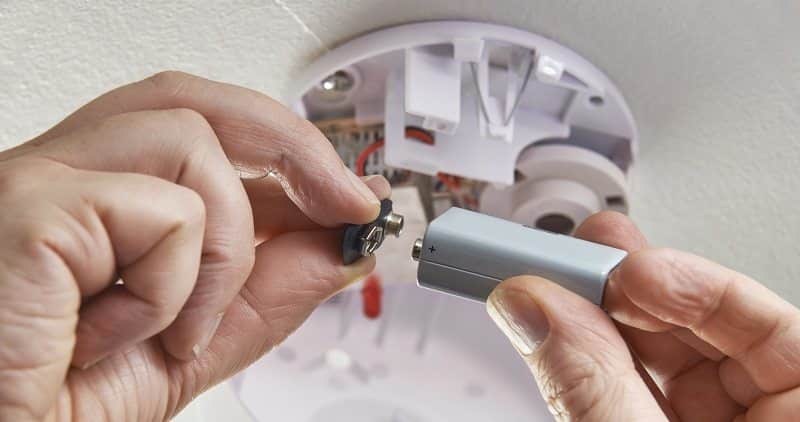As weather cools, now is the time of year that people begin to turn to manufactured sources of heat to stay warm, ranging from in-home fireplaces to electric blankets to space heaters to home heating systems. While these are all great ways to keep cozy when fall temperatures dip–and certainly when fall transitions to winter–sources of heat always pose the risk of fire. As such, here are some fall safety tips to keep in mind to stay safe and reduce fire risk:
Check Your Smoke Detectors
Your smoke detectors should be tested at least once a month in order to ensure they are functioning properly. To do this, simply press and hold the test button on the detector (make sure to give everyone in your home warning first!) and determine whether the alarm that is sounded is weak, quiet, or nonexistent. If it’s not the piercing, shrilling sound that it should be, replace the batteries and re-test.
Keep Flammable Items Far from Sources of Heat
Another thing that you can do to reduce the risk of a home fire is to make sure that all flammable items are kept at least three feet from anything that gets hot, like a fireplace or space heater, as recommended by the American Red Cross.
Don’t Leave Heat Sources on or Unattended
If you start a fire to stay warm, do not leave the house or fall asleep while it is still burning. If you light a candle, do not leave the room without blowing it out. If you turn on a space heater, turn it off when it is not needed. If you use an electric blanket, do not forget to flip it off in the morning. No matter the source of heat, you should always make sure that it is turned off/put out before leaving. It only takes a second for something to catch fire; if you leave the room, turn it off or put it out!
Talk to Kids About Fire Safety
With fall and the introduction of candles and sources of heat, as well as leaves (which make for fun things to burn in a child’s mind), it is not unusual for children to develop curiosity about flames. Talk to your kids about fire safety and the dangers of flame. This includes explaining that the stove and oven are not toys and should not be operated. Keep matches and lighters out of young children’s reach.
Develop a Fire Emergency Plan
If there is a fire in your home, it will be important that all family members know what to do and where to go. Develop a fire emergency plan and make sure all family members, especially children, understand. Practice the plan regularly as a family, so that everyone is clear on what to do. Keeping a bulletin board with information may also be helpful for younger members of the household remember to remember a fire emergency plan.
Many of the safety tips listed above may seem like common sense but they could also be lifesavers.
